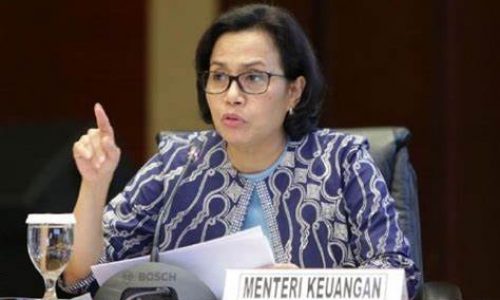Double Taxation Agreements include lower tax tariff or tax exemptions. In order to obtain benefits from Double Taxation Agreements, several requirements are needed. This article will provide an overview of the Implementation of Double Taxation Agreement in Indonesia pursuant to the applicable laws.
Governing law and regulations
- Director General of Tax Regulation (PerDJP) No. PER-25/PJ/2018 on Procedures for Application of Double Tax Avoidance Agreements.
- Law No. 7/1983 on Income Tax and its amendments
Overview
Avoidance of Double Tax Agreement (DTA) is an agreement between the Government of Indonesia and the government of a partner country or partner jurisdiction to prevent the occurrence of double taxation and tax evasion. In accordance with the provisions of the current DTA, the Director General of Taxes can share information on taxation concerns with the tax authorities of partner countries or DTA partner jurisdictions. In addition, the Director General of Taxes has the authority to obtain information on taxes concerns from taxpayers or other parties. The government had already made DTA with several countries.
DTA is regulated under Director General of Tax Regulation (PerDJP) No. PER-25/PJ/2018 on Procedures for Application of the Avoidance of Double Tax Agreement, effective on January 1, 2019. This regulation is issued in order to simplify and facilitate administration, provide legal certainty, and prevent the misuse of multiple tax avoidance agreements.
Benefits through Avoidance of Double Tax Agreement
The DTA provides facilities in a form of lower tax tariff compared to the tax tariff set out under Law No. 7/1983 on Income Tax and its amendments or tax exemption at the source country.
Preconditions
Non-resident taxpayer as referred to in the Income Tax Law which receives and/or acquire income sourced from Indonesia through a permanent establishment or without a permanent establishment, may obtain DTA benefits in accordance with the provisions set out under a DTA on condition that:
- income recipients are not Indonesian resident tax subjects;
- income recipients are individual persons or entities that are the resident tax subjects of DTA partner countries or partner jurisdictions;
- there is no misuse of DTA; and
- income recipients are beneficial owners, in the case of it is required under the DTA.
Certificate of Domicile of Non Resident for Indonesia Tax Withholding or DGT Form
In order to obtain benefits governed by the DTA, non-resident taxpayers have to fill and submit a specific document called the DGT Form issued by the Indonesian Tax Authority (ITA). Inside the DGT form there’s a few things that need to be filled out, which are:
- The income recipient identity that includes Tax ID Number, name, full address, country of origin;
- A certification by a competent authority or authorized tax office of the country of residence to confirm that the non-resident taxpayer is a resident of the DTA partner country.
- Additional information regarding the identity of the non-resident taxpayer.
Application
The benefits under DTA are dependent on the fulfillment of preconditions set forth above. Benefits will be denied by the ITA if the non-resident taxpayer fails to fulfill such requirements.
- Non-residents shall submit a Certificate of Domicile (CoD) to tax collectors and/or withholders.
- Tax withholding and/or collectors that receive CoD must electronically submit the information in the CoD concerned to ITA through the web page of ITA or certain channels determined by ITA.
- After the submission of CoD, a CoD Receipt will be issued and tax withholders and/or collectors will deliver the said CoD receipt to the non-resident taxpayer.
The submission of CoD to ITA is only carried out 1 time to receive DTA benefits, in accordance with the period incorporated under the CoD. Non-resident taxpayers that already have a CoD Receipt do not need to submit CoD to tax withholdings and/or collectors for the next withholding of tax in accordance with the period incorporated under the CoD.
If it is discovered that the preconditions to obtain DTA benefits are not fulfilled, then tax withholders and/or collectors should carry out the withholding of tax in accordance with the provisions set out under the Income Tax Law.
In order to obtain DTA benefits, apart from having to fulfill administrative requirements, non-resident taxpayers must also be able to show that there is no misuse of DTA and non-resident taxpayers is the beneficial owner of the income that is the object of withholding.
Non-resident taxpayers may request a refund of the excess withholding and/or collection of taxes related to the implementation of DTA caused, one of them, by the delay in fulfilling the administrative requirements to apply DTA after the withholding and/or collection of taxes occurs.
GDT Form must be available before the expiration of the obligation to submit annual tax return (SPT) for the period of tax payable.









